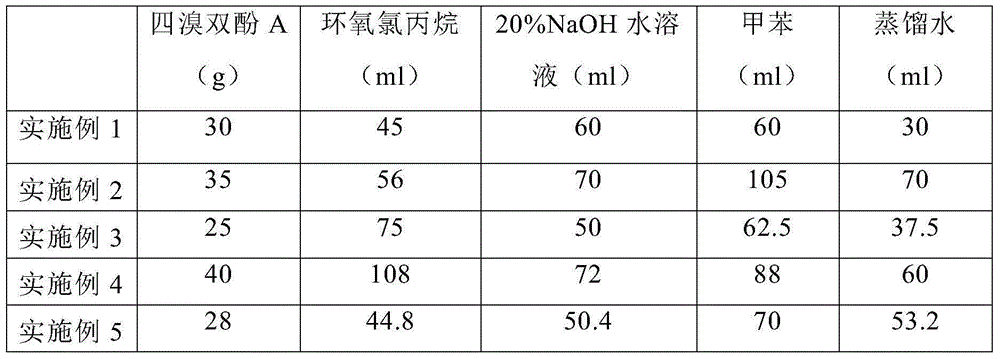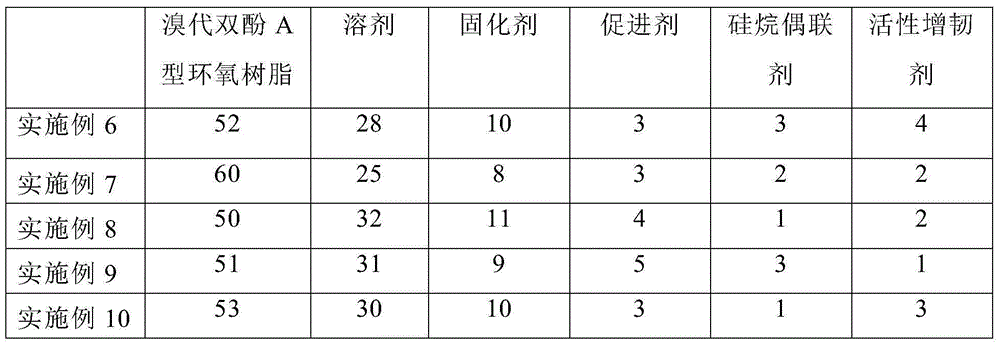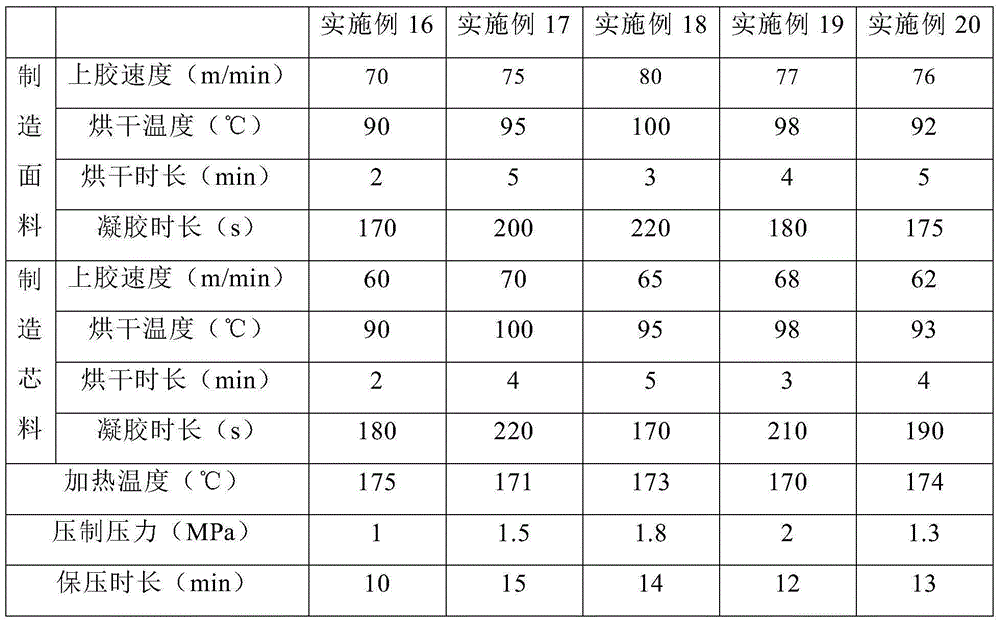Manufacturing method for CEM-1 type copper clad laminate
A CEM-1, manufacturing method technology, applied in the direction of chemical instruments and methods, lamination, layered products, etc., can solve the problem of poor leakage resistance, tracking resistance, peel resistance, crack resistance and resistance of copper-clad laminate base paper. Poor impact performance, lack of UV light blocking and other problems, to achieve the effect of improving peel strength, improving glue toughness, and reducing curing time
- Summary
- Abstract
- Description
- Claims
- Application Information
AI Technical Summary
Problems solved by technology
Method used
Image
Examples
Embodiment 1
[0072] Add tetrabromobisphenol A and epichlorohydrin into the reaction kettle, stir at room temperature for 25 minutes, heat up to 60°C, add 20% NaOH aqueous solution dropwise, finish the dropwise addition within 30 minutes, and raise the temperature to 70°C after the dropwise addition ℃, reacted for 2h, added distilled water and toluene, stirred until dissolved, separated, and vacuum distilled to obtain the brominated bisphenol A type epoxy resin;
Embodiment 2
[0074] Add tetrabromobisphenol A and epichlorohydrin into the reaction kettle, stir at room temperature for 30 minutes, heat up to 50°C, add 20% NaOH aqueous solution dropwise, finish the dropwise addition within 60 minutes, and raise the temperature to 80°C after the dropwise addition ℃, reacted for 1.5h, added distilled water and toluene, stirred until dissolved, separated, and vacuum distilled to obtain the brominated bisphenol A epoxy resin;
Embodiment 3
[0076] Add tetrabromobisphenol A and epichlorohydrin into the reaction kettle, stir at room temperature for 28 minutes, heat up to 60°C, add 20% NaOH aqueous solution dropwise, and finish the dropwise addition within 50 minutes, then raise the temperature to 75°C ℃, reacted for 2h, added distilled water and toluene, stirred until dissolved, separated, and vacuum distilled to obtain the brominated bisphenol A type epoxy resin;
PUM
 Login to View More
Login to View More Abstract
Description
Claims
Application Information
 Login to View More
Login to View More - R&D
- Intellectual Property
- Life Sciences
- Materials
- Tech Scout
- Unparalleled Data Quality
- Higher Quality Content
- 60% Fewer Hallucinations
Browse by: Latest US Patents, China's latest patents, Technical Efficacy Thesaurus, Application Domain, Technology Topic, Popular Technical Reports.
© 2025 PatSnap. All rights reserved.Legal|Privacy policy|Modern Slavery Act Transparency Statement|Sitemap|About US| Contact US: help@patsnap.com



